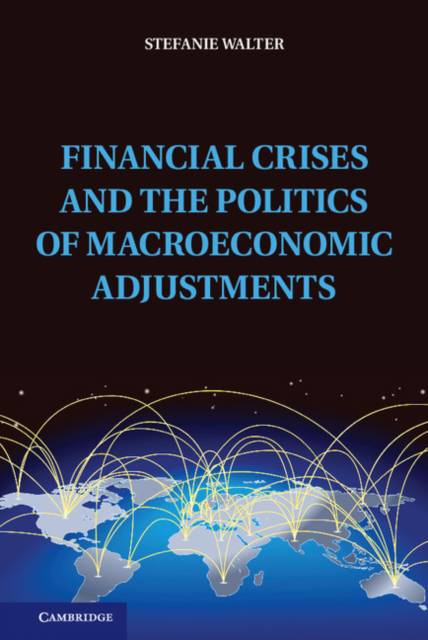
Door een staking bij bpost kan je online bestelling op dit moment iets langer onderweg zijn dan voorzien. Dringend iets nodig? Onze winkels ontvangen jou met open armen!
- Afhalen na 1 uur in een winkel met voorraad
- Gratis thuislevering in België vanaf € 30
- Ruim aanbod met 7 miljoen producten
Door een staking bij bpost kan je online bestelling op dit moment iets langer onderweg zijn dan voorzien. Dringend iets nodig? Onze winkels ontvangen jou met open armen!
- Afhalen na 1 uur in een winkel met voorraad
- Gratis thuislevering in België vanaf € 30
- Ruim aanbod met 7 miljoen producten
Zoeken
Financial Crises and the Politics of Macroeconomic Adjustments
Stefanie Walter
€ 112,45
+ 224 punten
Uitvoering
Omschrijving
When are policy makers willing to make costly adjustments to their macroeconomic policies to mitigate balance-of-payments problems? Which types of adjustment strategies do they choose? Under what circumstances do they delay reform, and when are such delays likely to result in financial crises? To answer these questions, this book examines how macroeconomic policy adjustments affect individual voters in financially open economies and argues that the anticipation of these distributional effects influences policy makers' decisions about the timing and the type of reform. Empirically, the book combines analyses of cross-national survey data of voters' and firms' policy evaluations with comparative case studies of national policy responses to the Asian Financial Crisis of 1997/8 and the recent Global Financial Crisis in Eastern Europe. The book shows that variation in policy makers' willingness to implement reform can be traced back to differences in the vulnerability profiles of their countries' electorates.
Specificaties
Betrokkenen
- Auteur(s):
- Uitgeverij:
Inhoud
- Aantal bladzijden:
- 272
- Taal:
- Engels
- Reeks:
Eigenschappen
- Productcode (EAN):
- 9781107028708
- Verschijningsdatum:
- 31/10/2013
- Uitvoering:
- Hardcover
- Formaat:
- Genaaid
- Afmetingen:
- 155 mm x 231 mm
- Gewicht:
- 498 g

Alleen bij Standaard Boekhandel
+ 224 punten op je klantenkaart van Standaard Boekhandel
Beoordelingen
We publiceren alleen reviews die voldoen aan de voorwaarden voor reviews. Bekijk onze voorwaarden voor reviews.











